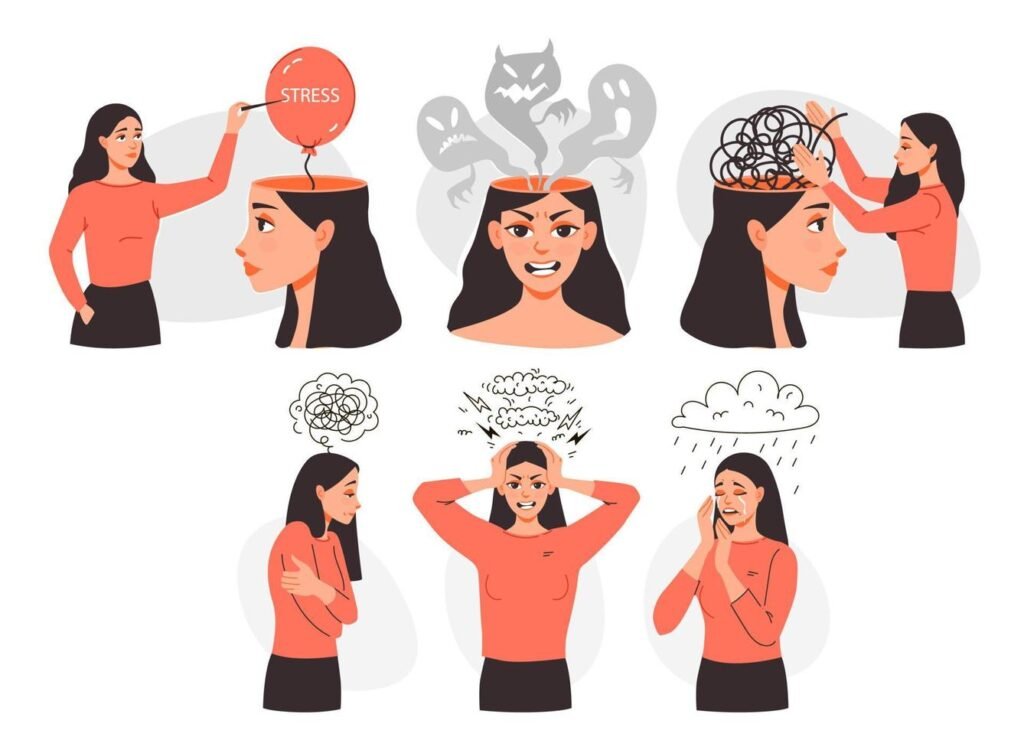Wellhealthorganic Stress Management
Wellhealthorganic Stress Management

Simple tips to deal with stress
Are you struggling with stress? This stress can be long term or short term. Chronic stress can last for months or years, but short-term stress often lasts a few days or weeks. Our mental and physical health can be affected by stress. This can lead to diabetes, high blood pressure, heart disease and mental health problems.
In this article, we have given some solutions to deal with stress. By trying these, you will be able to easily deal with your stress and live a happy and healthy life.
What is stress management?
A process by which people develop their skills and resources to cope with stressful situations. There are many different methods of stress management, but they all aim to reduce stress levels and improve quality of life.
Everyone has stress. This happens in challenging or dangerous situations. Some common signs of stress are:
- worrying
- nervousness
- Tension
- having a headache
- muscle pain
- sleep problems
- appetite change
Controlling stress can be a lifelong practice. It is important to remember that each person’s stress management strategies may be different. It is important to spend time using different techniques and finding the one that works best for you.
10 easy and effective ways to relieve stress
Everyone has stress. This happens in challenging or dangerous situations. Prolonged stress can cause many health problems, including diabetes, depression and heart disease. Therefore it is important to control stress.
Here are 10 easy and effective ways that can help you manage stress:
1. Identify your deadlines and priorities
Figure out your priorities and deadlines. You can help reduce stress if you manage your time. Identify your priorities and deadlines, so you have enough time to complete your tasks.
2. Learn to say “no”
Learn to say “no”. When you have too much work, it is very important to say “no”. Your time should not be given to others.
3. Focus on your priorities
Focus on your needs. Focus on the most important things in your life. Stay away from inactive things.
4. Take time for yourself
Take time for yourself. It is important to give yourself time. Do things that make you feel relaxed and refreshed, like reading, listening to music, or going outside.
5. Eat a healthy diet
Eat proper food. Eating a healthy diet can reduce stress. Include fresh fruits, vegetables and whole grains in your diet.
6. Adequate sleep
Get complete sleep. Getting adequate amounts of sleep can help reduce stress and improve your health. Get seven to eight hours of sleep every night.
7. Exercise regularly
Exercise regularly. Regular exercise can help reduce stress. Exercise can also help boost your confidence, improve your mood, and improve your sleep patterns.
8. Practice stress-relief techniques
Learn stress-free methods. To reduce stress, doing stress-free exercises like meditation, yoga, pranayam can be beneficial.
9. Spend time with your friends and family
Spend time with your family and friends. Spending time with friends and family can help reduce stress and increase your support.
10. Seek professional help if necessary
Take help from experts if necessary. If you can’t control stress, it’s important to seek professional help. A psychiatrist or therapist can help you make a plan to manage stress.
Conclusion –
Everyone has stress. Various types of stress, however, can have a negative impact on mental and physical health. Managing stress can help us stay healthy and happy. Stress management is an important skill that can help us stay happy and healthy. Everyone can learn and practice it.




